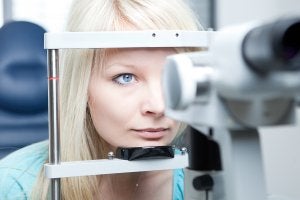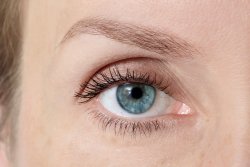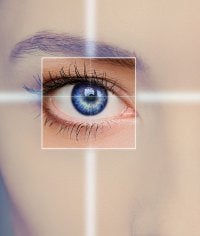-
Adult Risk Factors for Cataracts
 It’s easy to take your good vision for granted, but if something should go wrong, it could change your entire life. If you have not visited an eye doctor in Chicago recently, it’s time to make an appointment. Your eye doctor can spot potential vision problems before you even notice that something is wrong. Cataracts are a common condition that tend to affect older adults, and can lead to blurry, tinted vision. If your cataracts become severe, you may need to consult a custom cataract surgeon in order to restore your vision. Read on to learn about the risk factors for cataracts.
It’s easy to take your good vision for granted, but if something should go wrong, it could change your entire life. If you have not visited an eye doctor in Chicago recently, it’s time to make an appointment. Your eye doctor can spot potential vision problems before you even notice that something is wrong. Cataracts are a common condition that tend to affect older adults, and can lead to blurry, tinted vision. If your cataracts become severe, you may need to consult a custom cataract surgeon in order to restore your vision. Read on to learn about the risk factors for cataracts.Age
Aging is a part of life, but it can bring changes in your health that you may not be prepared for. Cataracts tend to affect people over the age of 60, though there are people who develop cataracts during middle age. Approximately half of adults over the age of 75 have cataracts and may need eye surgery to correct them. Normal proteins inside your eye’s lens can clump together as time goes on, which is what creates the cloudy effect in your vision.
Demographics
In general, women tend to have a higher risk of developing cataracts than men. Like many medical conditions, cataracts can be hereditary, so it’s a good idea to know your family history and find out if any of your relatives experienced them. Individuals of certain ethnicities may also be at a higher risk for cataracts, specifically African Americans and Hispanic Americans.
Medical Conditions
High blood sugar levels can contribute to the development of cataracts, which is one of the reasons why people with diabetes have a higher risk of developing them. In addition, individuals with diabetes are more likely to develop cataracts when they are younger than those without the disease. People with autoimmune diseases such as rheumatoid arthritis, lupus, and multiple sclerosis may also be at a higher risk of developing cataracts because of steroid medications they may need to take frequently. Be sure to tell your eye doctor about your complete medical history during your next eye exam.
-
How Cataracts Affect Your Vision
A cataract is a clouding of the lens that can cause blurry vision. This condition is commonly related to age, but it can happen earlier in life. If your eye doctor tells you that you have cataracts, you might need surgery in order to correct them.
In a healthy eye, the lens is clear and helps focus light so you can see properly. The lens is made of water and protein. With age, the proteins start to clump together to cause cataracts. Check out this video to learn more about the eye and cataracts.
If you do have cataracts, it is important to find a quality eye doctor in Chicago who can help you find the right treatment. With custom cataract surgery, your doctor can remove the cloudy lens and fit you with an intraocular lens that restores your vision.
-
Choosing Protective Sunglasses
You probably know that the sun’s rays can damage your skin and even lead to skin cancer, but did you know that exposure to UV rays can also be dangerous for your eyes? Watch this video to learn why you should choose protective sunglasses from a vision center near Chicago .
When you reach for your sunscreen to lather up before you go outside, don’t forget to grab a pair of sunglasses at the same time. Choose a pair that blocks at least 99% of UVA and UVB rays to give yourself the most protection. If you need new glasses, be sure to look for a sticker that rates the shades’ UV protection level before you buy them. Remember to look for a pair that you will enjoy wearing—protecting yourself from the harmful rays of the sun can be fashionable as well as practical! For additional sun protection, grab a wide-brimmed hat to shade your eyes, face, and neck so you can enjoy the outdoors safely.
-
An Overview of LASIK Eye Surgery
 If you wear glasses or contact lenses, LASIK eye surgery could fix your vision issues to free you from the burden of corrective lenses. Keep reading for an overview of the procedure and how it can help you break away from the restraints of a life with glasses or contacts.
If you wear glasses or contact lenses, LASIK eye surgery could fix your vision issues to free you from the burden of corrective lenses. Keep reading for an overview of the procedure and how it can help you break away from the restraints of a life with glasses or contacts.It Treats Refractive Errors
Most people who need corrective lenses have refractive issues that prevent light from reaching the cornea in the proper way. Refractive errors include nearsightedness, or myopia, farsightedness or hyperopia, presbyopia, and astigmatism. If you suffer from any of these issues, you should get a LASIK consultation near Chicago to see if this form of eye laser surgery can improve your vision.
It Uses a Laser to Reshape the Cornea
If you and your ophthalmologist decide that this is the right procedure for you, he or she will use a revolutionary laser to cut a small flap on the cornea. The ophthalmologist then sculpts the corneal tissue with a laser so light hits it the right way. Once this step is complete, the doctor can replace the flap. The LASIK eye surgery is a fast procedure that effectively corrects your refractive issues so you can have better vision.
It Has a Quick Recovery Time
Most patients heal quickly after their LASIK procedures. Your ophthalmologist will send you home with a prescription for eye drops that prevent your eyes from getting infected. You might experience hazy vision for a day or so, but you should enjoy improved vision within a few days after the procedure. After a follow-up visit with your ophthalmologist, you should schedule visits every six months to ensure your vision is doing well.
If you are interested in improving your refractive issues, you should schedule an appointment for an eye exam. After a thorough examination, the eye doctor can tell you if this surgery is the right treatment option for your vision issues or if you need to go with another option.
-
Benefits of Intraocular Lenses
 If you are one of the many people who rely on glasses or contact lenses in order to see clearly, you may have resigned yourself to the fact that you will always need these assistive aids. You may have even asked your eye doctor in Chicago about LASIK eye surgery, only to be told that you aren’t a good candidate for the procedure. If you are nearsighted, you may have another option. Intraocular contact lenses (ICL) work with the eye’s natural lens to improve vision without the hassle of glasses or external contact lenses. Visian ICL offers predictable and stable results, with an excellent quality of vision following the procedure. The implantation itself is relatively simple, as the lens is inserted through a very small incision. You won’t be able to see the lens once it’s implanted, and you won’t have to do anything to maintain it. Whether your myopia is mild or severe, ICL may be an option for you. Though removal shouldn’t be necessary, intraocular contact lenses are removable if the need should arise in the future.
If you are one of the many people who rely on glasses or contact lenses in order to see clearly, you may have resigned yourself to the fact that you will always need these assistive aids. You may have even asked your eye doctor in Chicago about LASIK eye surgery, only to be told that you aren’t a good candidate for the procedure. If you are nearsighted, you may have another option. Intraocular contact lenses (ICL) work with the eye’s natural lens to improve vision without the hassle of glasses or external contact lenses. Visian ICL offers predictable and stable results, with an excellent quality of vision following the procedure. The implantation itself is relatively simple, as the lens is inserted through a very small incision. You won’t be able to see the lens once it’s implanted, and you won’t have to do anything to maintain it. Whether your myopia is mild or severe, ICL may be an option for you. Though removal shouldn’t be necessary, intraocular contact lenses are removable if the need should arise in the future. -
COVID-19 Alert
June 2020: As the state of Illinois re-opens, we want to reassure you that, in spite of the current security situation, it is safe to come and see us for all of your eyecare needs. During this unprecedented time, we want to assure you that we are taking every possible precaution to safeguard your health and well-being. Our office continues to be open and we have been providing complete service for the past few weeks, utilizing recommended volume reductions, social distancing, and enhanced cleaning and safety precautions. Please see the list below which indicates some of the changes we have made to further reassure the safety of patients and staff.
If you have any questions or concerns, please call us at any time and we will be happy to discuss your concerns.
Sincerely,
The doctors and staff of Gerstein Eye Institute.
Your Upcoming Appointment
MINIMIZING WAIT TIME AND MAXIMIZING SOCIAL DISTANCE
Our waiting areas are rearranged to promote social distancing. If you feel more comfortable waiting in your car or in the building lobby, our receptionist can call you on your mobile phone when the doctor is ready to see you, if you so request.
PATIENT and STAFF SAFETY
- Please have just one person bring you to your appointment. If possible, your companion should wait in the car. Translators will be the only exception.
- Only patients (NO VISITORS) are permitted in the exam room unless assistance is required.
- Please wear a mask or suitable face covering, as per state regulations.
- Doctors and staff will be wearing masks. There are protective face shields on our exam equipment. All staff and patients will be screened daily to make certain they are in good health and without symptoms.
- Sanitized exam lanes and equipment have always been our practice. Based on the CDC’s latest recommendations, we have added extra precautions and additional steps specific to this pandemic.
- We have removed sharable material, such as magazines, from the waiting areas.
- We have removed or blocked off chairs in the waiting areas to maintain a six-foot distance between patients and have opened up an additional waiting room if necessary.
MINIMIZING WAIT TIME AND MAXIMIZING SOCIAL DISTANCE
Our waiting areas are rearranged to promote social distancing. If you feel more comfortable waiting in your car or in the building lobby, our receptionist can call you on your mobile phone when the doctor is ready to see you, if you so request.
WHAT YOU CAN DO
If you have an appointment within the next month, AND HAVE NOT ALREADY HEARD FROM US, please let us know if you need to reschedule. The most efficient way to do this is to send us a message via the patient portal. If you need to call (773-973-3223) please feel free to leave a voicemail message. We are eager to continue to be able to provide the highest level of care for our patients, safely and efficiently. If you have had surgery cancelled, we will contact you regarding rescheduling it.
-
Dust and your Eyes

Whether it’s an allergic reaction or a speck that gets stuck, some time or another we all have to deal with dust affecting our eyes. That’s why it’s smart to be prepared, and know what to do if dust is causing a problem for you. How do you deal with dust when it comes to your eyes?
Is it an allergy or a contaminant? Sometimes the answer to that question is not very clear cut. Itchy, watery, uncomfortable eyes can mean that you’re allergic to something, or they could mean that there’s a foreign body in one or both of your eyes.
If it’s an allergy to dust, you’ll also experience allergic rhinitis. You’ll sneeze, cough, have a headache from sinus congestion, experience difficulty breathing, and have a runny nose. As to your eyes, allergic conjunctivitis will cause inflammation, watering, itching, and redness. Allergies can come on at any age, but they usually start under the age of 30.
What can you do about allergy eyes? A dust allergy is actually an allergy to dust mites, the microscopic bugs that live in house dust. To lessen your allergies, take steps to control the dust and dust mites in your home. Use allergen-proof bed and pillow covers, wash bedding and stuffed animals frequently, keep the humidity of your house low, vacuum regularly, and use a damp or oiled mop or rag to clean up dust. Reduce clutter, consider removing carpeting, and install a high-efficiency filter in your HVAC. Talk to your eye doctor, who may direct you to take medication, like antihistamines or corticosteroids.
Sometimes the problem isn’t so much the effect dust has on your eyes as it is that you’ve got some dust in your eyes. It’s easy to get dust in your eye, whether at home, at work, or even outside. Whenever it feels like there’s something in your eye, there are several steps you can take to relieve your discomfort.
- First, wash your hands, then inspect your eye. Be careful not to rub it, so that you don’t scratch your cornea, and always keep tweezers and cotton swabs away from your eye. Try to find the location of the object, looking near the eyelids and inside your upper and lower eyelids.
- Try to flush whatever it is out. Fill your hands with clean water and flush your eye a few times, patting dry with a clean towel. Check to see whether you still feel like there’s something in your eye. Often, flushing out your eyes is all that’s necessary to solve your problem.
- If it’s still there, move your eyelids around. Gently pull your upper eyelid over the lower one, rolling your eye upwards. Release and see if the item has been dislodged.
- When you can’t seem to get the dust out of your eye, see a doctor. If the object lodged in your eye is sharp or large, you should seek immediate medical attention, at the emergency room or with your eye doctor. Even if it’s just dust, your eye doctor can help remove it from your eye.
If you’re looking for an eye doctor, Gerstein Eye Institute is here to help. Since 1968, the Gerstein Eye Institute has been providing exceptional ophthalmologic care to patients in the Chicago area. With decades of experience in ophthalmology, our certified professional staff members work hard to provide the kind of personalized care that keeps patients coming back year after year, eventually entrusting the eye health of their children and grandchildren to us as well. To schedule an appointment, call us at (773) 973-3223 or contact us through our website.
-
Get your Eyes Ready for the Summer

People often talk about getting their bodies ready for beach season, but have you ever considered whether your eyes are summer ready? Just as you get your body into shape for summer and take measures to protect it from the sun while you enjoy the outdoors, you can take measures to care for your eye health as well.
- Get the right kind of sunglasses. You know that you need sunscreen to protect your skin from ultraviolet radiation, but you may not realize that UV rays can harm your eyes as well. Even if you’re not directly in the sun, and even if the day is cloudy, wear sunglasses with 100 percent protection against UVA and UVB rays. This will protect your eyes from short term problems like photokeratitis, and long term issues like cataracts and skin cancer of the eyelids.
- Don’t forget goggles in the pool. The chemicals in pool water can hurt your eyes. Of course, you know that chlorine can cause your eyes to feel a burning sensation and get red and gritty, but research indicates that frequent exposure to chlorine can also compromise your corneal epithelium. After you get out of the pool, rinse your eyes immediately with fresh water.
- Other outdoor activities require eye protection as well. You might think of chemical burns as something that happens in a science lab or at a dangerous job, but some common household solutions can be hazardous to your eyes as well. Soap bubbles that pop near your eyes, spray paint, which can blow back into your face while you’re using it, and splashing cleaning solutions can all hurt your eyes. Whenever you’re working with chemicals, wear protective eyewear. It’s also wise to wear eye protection when you are doing activities that could cause foreign bodies to fly into your eyes, like yard work, woodworking, and sports. You can also wear wraparound glasses to protect your eyes from windy conditions.
- Toss on a hat for added assurance. A wide-brimmed hat, especially used in conjunction with sunglasses, can offer another layer of protection against the sun. The hat can provide shade that makes up for the gaps where the sunglasses let UV rays get around their frames and into your eyes.
- Keep your hands out of your eyes. One of the best ways to protect your eyes from communicable disease or infection is to wash your hands frequently and avoid rubbing your eyes. You should also wash your hands carefully if you have to put in eye drops, ointment, or contact lenses.
- Lead a healthy lifestyle. Getting enough sleep, refraining from smoking, and eating a healthful diet are all steps you can take to keep your eyes healthy. Foods rich in vitamins and other nutrients can improve your vision and your eye health, so make sure to fill your diet with fatty fish, fruits and vegetables. Drink plenty of water, because hydration is just as important to your eye health as it is for your overall health, and it’s even more vital in hot weather. If you smoke, quit, to begin to reverse the damage you’ve already done to your eyes. If you don’t smoke, don’t start. Additionally, for optimal eye health, see an eye doctor regularly.
No matter what time of year it is, you can always feel confident trusting Gerstein Eye Institute with the care of your eyes. Since 1968, the Gerstein Eye Institute has been providing exceptional ophthalmologic care to patients in the Chicago area. With decades of experience in ophthalmology, our certified professional staff members work hard to provide the kind of personalized care that keeps patients coming back year after year, eventually entrusting the eye health of their children and grandchildren to us as well. To schedule an appointment, call us at (773) 973-3223 or contact us through our website.
-
Why your Eye is Twitching, and What to Do About it

Sooner or later it happens to all of us: a twitching eye. It’s annoying, and it can seem to start out of the blue, but is there a reason behind it? Do you know why your eye is twitching? Perhaps more importantly, do you know what to do about it?
Eye twitching, called myokymia in medical terms, is typically harmless, and usually goes away in a few minutes. Sometimes, however, it can last for days or even longer. That’s when it might be time to call an eye doctor. Eye twitching that doesn’t go away could mean a serious neurological condition like blepharospasm or hemifacial spasm.
That kind of condition, however, is rare. Most cases of eye twitching are triggered by something far more mundane and easy to manage. In many cases, thinking about what may have caused the twitching can lead you to the solution to the problem.
- Stress: If you think stress may be causing your eye to twitch, try to alleviate some stress. Yoga and breathing exercises, spending time with loved ones and pets or finding a way to get a little more downtime can help reduce your stress levels.
- Fatigue: Lack of sleep can trigger eye twitching, but aiming for a consistent sleep schedule may alleviate an eye twitch caused by fatigue.
- Eye strain: In this digital age, it’s easy to get digital eye strain from staring at screens. Overuse of computers, tablets, and smartphones is a cause of eye strain, which in turn triggers eyelid twitching. To avoid straining your eyes, use the 20-20-20 rule: every 20 minutes, look away from your screen and focus on an object at least 20 feet away for 20 seconds. You might also consider computer eyeglasses, especially if your job requires excessive screen time.
- Caffeine: Too much caffeine can lead to twitching eyes, but cutting back on coffee, tea, and soft drinks for a week or two may be the cure.
- Alcohol: If your eye twitching seems to occur after you’ve had an alcoholic beverage, try abstaining for a while.
- Dry eyes: Dry eyes are not uncommon, especially in people over 50 and those who use computers, take certain medications, wear contact lenses and consume alcohol or caffeine. If your twitching eyelid is accompanied by feeling that your eyes are gritty or dry, you might want to talk to your doctor about a dry eye evaluation.
- Nutrition problems: Certain nutritional deficiencies, like a lack of magnesium, can cause eyelid spasms and twitching. If you think this may be a concern for you, talk to your eye doctor about nutritional supplements that might help.
- Allergies: Allergies cause itching, swelling, and watery eyes, and when you rub your allergic eyes, histamine is released into your eyelid causing eye twitching. You might be able to treat this problem with over-the-counter allergy eye drops, but antihistamines in those drops can cause dry eye, so it’s smart to talk to your doctor about your best options.
Sometimes, eye twitches can be relieved through the use of warm compresses and gentle eyelid massage. If you’ve considered all of the previously mentioned causes, adjusted your habits where necessary, and tried warm compresses, and the twitching persists, it may be time to call a doctor. There are treatments available for persistent eye twitching, including medications, Botox injections, and surgery.
One piece of good news: even though a twitching eye may be annoying and make you feel self-conscious, it’s unlikely that anyone else will notice it. If your eye twitch concerns you enough that you think you need an eye doctor, the Gerstein Eye Institute in Chicago can help. Since 1968, the Gerstein Eye Institute has been providing exceptional ophthalmologic care to patients in the Chicago area. With decades of experience in ophthalmology, our certified professional staff members work hard to provide the kind of personalized care that keeps patients coming back year after year, eventually entrusting the eye health of their children and grandchildren to us as well. To schedule an appointment, call us at (773) 973-3223 or contact us through our website.
-
How to Treat your Bloodshot Eyes

Everyone’s eyes get bloodshot or red from time to time, and most of the time it’s pretty easy to figure out why. Maybe you’ve been around cigarette smoke, or you’ve been swimming in a chlorinated pool, or your allergies are flaring up. Red or bloodshot eyes are typically harmless, but sometimes, they indicate a condition that warrants medical attention. How do you know if you can treat your bloodshot eyes at home or if it would be better for you to see an eye doctor?
- If your eyes are seeping or crusty, with yellow, green, or brown mucus it could be a sign of infection.
- Pain or unusual tenderness in or around your eyes might warrant a doctor’s attention.
- An unusual sensitivity to light, along with red eyes, could indicate a serious issue.
- If you have a fever or overall sickness in addition to your red eyes, you should seek medical care.
- Exposure of anyone in your household to pink eye should cause you to talk to your doctor if your eyes become red.
- Redness or discomfort that lasts for more than a week and doesn’t respond to home remedies warrants a doctor visit.
Red eyes can be an indication of a serious medical condition. There is an acute form of glaucoma, for instance, causes red eyes, along with severe eye pain. It also manifests with headache, decreased or blurred vision, rainbows or halos in the vision, and nausea and vomiting. If you have red eyes with these symptoms, you should see a doctor as soon as possible. Uveitis, an inflammation of the uvea, is another serious condition. Symptoms of uveitis can include light sensitivity, decreased vision, and eye pain, in addition to red eyes. Uveitis can be caused by an underlying systemic illness and can cause numerous complications including cataracts, retinal detachment, and elevated eye pressure, all of which can result in permanent vision loss. Eye injury or infection and dry eye can also cause red eyes.
If your bloodshot eyes don’t seem to indicate a serious problem, you can try some home remedies or over-the-counter treatments to help relieve the redness and discomfort. Artificial tears can help with dry eyes, and antihistamine eye drops can relieve the red eyes of seasonal allergies. Cool compresses or washcloths on your closed eyes can also offer some relief. To avoid getting red eyes in the future, wash your hands frequently to prevent eye infections, and try to steer clear of irritants like smoke, fumes, pollen, dust, chlorine, or pet dander.
People tend to assume that red eyes will go away on their own, or with some treatment at home, but that’s not always the case. If you think your bloodshot eyes may require medical attention, the Gerstein Eye Institute in Chicago can help. Since 1968, the Gerstein Eye Institute has been providing exceptional ophthalmologic care to patients in the Chicago area. With decades of experience in ophthalmology, our certified professional staff members work hard to provide the kind of personalized care that keeps patients coming back year after year, eventually entrusting the eye health of their children and grandchildren to us as well. To schedule an appointment, call us at (773) 973-3223 or contact us through our website.
